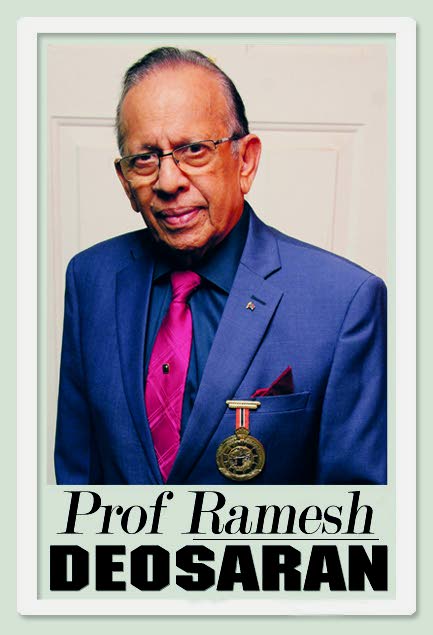Judges want Hinds’ apology

Pushing aside debate over “silk” awards and Brian Lara’s “hurt feelings” about murders, National Security Minister Fitzgerald Hinds’ remarks about “criminal having friends in the judiciary” pulled us into volatile territory.
His comment followed Justice Devindra Rampersad’s 97-page judgment which, using the term “an unlawful abduction,” seriously questioned the role of the police here and Barbados in bringing fire arms dealer Brent Thomas back to Trinidad. Thomas sued and won.
Thomas’ lawyer, Fyard Hosein, SC, disputed Barbados AG Dale Marshall, KC, statement and said that the arrest warrants allegedly did not say Thomas was wanted on arms and ammunition trafficking charges. AG Reginald Armour, SC, said he will appeal.
An apparently dissatisfied Mr Hinds said: “Criminals have friends everywhere in this country. They have them in the police service, they have them in the customs, in the immigration, in the defence force, they have them in the Judiciary, they have them in Parliament.”
The irony is that people didn’t object to his statement except the “Judiciary” line.
Controversy erupted. The central issues became independence of the judiciary, an implied allegation of judicial complicity and loud calls for an apology from Mr Hinds. Justice Rampersad, with some 12 judges, publicly called for an apology. Then the Judiciary itself called for an apology and strongly condemned Mr Hinds’ statement as having “a dangerous effect of undermining public trust and confidence in the Judiciary and the rule of law.”
Mr Hinds, not apologising, said, “I am an attorney of long standing…I have always upheld the principle of the independence and integrity of the judiciary and I always will.” Meanwhile, Israel Khan, SC, head of the Criminal Bar Association, also called for an apology and even Hinds’ dismissal as minister.
Justice Rampersad himself, in a lengthy court address, declared: “I have no friends who are criminals…I do not know Brent Thomas.” He passionately warned of the dangers of Hinds’ statement.
The Law Association demanded an apology from Mr Hinds too. It said: “It would have been impossible for the listening public to exclude the possibility that the minister was suggesting that the learned judge in the Brent Thomas case was somehow doing the bidding of the criminal element.” Does this “possibility” take us to “scandalising the court?” Does Hinds’ statement contain intended malice?
There is informative judicial thinking regarding statements or publications for contempt of court, particularly from our 1936 case (Ambard vs AG) where for example, after testing several judgments, the Privy Council declared: “Everyone will recognise the importance of maintaining the authority of the Courts in restraining and punishing interferences with the administration of justice…or take the form of attempts to depreciate the authority of the Courts themselves.”
For ordinary people, the Privy Council’s added views are useful: “No wrong is committed by any member of the public who exercises the ordinary right of criticising in good faith in private or public the public act done in the seat of justice. The path of criticism is a public way.” The Privy Council added: “The wrong-headed are permitted to err therein; provided that members of the public abstain from imputing improper motives to those taking part in the administration of justice, and are genuinely exercising a right of criticism and not acting in malice or attempting to impair the administration of justice, they are immune.” How does Hinds’ comment fit into this, if at all?
The Privy Council instructively concluded: “Justice is not a cloistered virtue; she must be allowed to suffer the scrutiny and respectful even though outspoken comments of ordinary men.”
AG Armour, rising to Hinds’ defence after “investigation,” said: “I am satisfied that it was not the intention of the Minister, in any way, to impugn the integrity of the Judiciary, either in any particular matter or generally…The Minster made a statement that the ‘criminals have friends everywhere in this country’ which statement could be interpreted inferentially, to impact the Judiciary of TT.”
Wait a minute. Inferentially? Didn’t AG Armour hear Hinds’ entire statement?
Whether this whole thing blows away or not, Hinds’ statement had clear words for the reasonable man. Now, given the blowout from this issue and the long-term implications for both sides, my view is that Minister Hinds should apologise, saying he intended no malice to the Judiciary. Close the matter.


Comments
"Judges want Hinds’ apology"